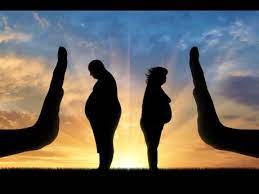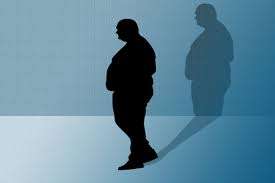We often hear that physical health and mental health are intricately connected, but nowhere is this more evident than in the relationship between obesity and depression.
As someone who has personally navigated these waters, I (LeanAndFit reviewer) can tell you it is a complicated, often overwhelming cycle.
You feel low, so you might eat for comfort, but then the extra weight drags you down even further, and before you know it, you are caught in a loop that’s hard to escape.
But why does this happen?
Is it purely psychological, or is there more going on under the surface, biologically speaking?
Let us dive into the relationship between obesity and depression to better understand how these two conditions fuel each other.
“What is The Link Between Obesity and Depression” Article Index:
- Introduction to the Obesity-Depression Link
- How Obesity Contributes to Depression
- How Depression Leads to Obesity
- The Biological Mechanisms Behind the Connection
- Childhood Obesity and Depression: Early Life Struggles
- Breaking the Cycle: Treatment Approaches for Depression and Obesity
- Conclusion: The Link Between Obesity and Depression
Introduction to the Obesity-Depression Link
We live in a society that often separates mental and physical health, but in reality, these two aspects of well-being are deeply intertwined.
Obesity and depression, in particular, have a complex relationship. If you have ever found yourself depressed and obese, you know that one can often exacerbate the other.
What is frustrating is that this connection is bidirectional, meaning obesity can increase your risk of depression, and depression can lead to weight gain and obesity.
Consider the vicious cycle: You feel depressed due to weight gain, and as your mood plummets, it becomes harder to engage in healthy habits like exercise or mindful eating.
The result?
More weight gain, leading to deeper feelings of sadness or frustration. This loop can feel impossible to break.
But this is not just a matter of willpower or personal choice.
There are real biological, psychological, and societal factors at play that link these two conditions.
Understanding the link between depression and obesity can be the first step toward breaking this cycle and finding a way out.
How Obesity Contributes to Depression?
Carrying excess weight, especially in a world that glorifies thinness, can take a significant emotional toll.
From a societal perspective, people who are overweight and depressed often face stigma and discrimination, which can worsen depressive symptoms.
The daily stress of living in a body that’s constantly judged can cause a person to withdraw from social activities, avoid exercise, and seek comfort in food, perpetuating the cycle.
But beyond societal pressures, there are psychological burdens that come with obesity.
Many people feel a sense of shame or guilt about their weight, which can lead to low self-esteem, anxiety, and feelings of hopelessness.
I remember distinctly how being fat and depressed felt like being trapped in a body that did not reflect who I truly was inside, and it is a struggle that many people with obesity face.
A study published in the Journal of Health Psychology found that people with a higher Body Mass Index (BMI) are more likely to experience depression.
This link is not just superficial but rooted in the psychological strain that comes with living in a body that is frequently judged.
BMI and depression are often correlated because as body weight increases, so does the likelihood of experiencing depression.
How Depression Leads to Obesity?
While it’s clear that obesity can contribute to depression, the reverse is also true: depression can lead to obesity.
When people are depressed, they may struggle to engage in the behaviors that would normally help them maintain a healthy weight.
This might mean skipping workouts, eating more high-calorie comfort foods, or sleeping too much or too little, all of which can lead to weight gain.
For me, depression made every healthy choice feel like a monumental task. Instead of going for a walk, I would sit on the couch, numbing my feelings with snacks.
The idea of cooking a healthy meal felt exhausting, so I would order something quick and unhealthy.
Over time, I found myself gaining weight, which only worsened my depression.
There’s also a biological component here. Depression alters the brain’s chemistry, often leading to hormonal imbalances that can impact appetite and energy levels.
The stress hormone cortisol, for example, is often elevated in people who are depressed, which can lead to increased fat storage, particularly around the abdomen.
This creates a physical condition where the person becomes depressed because of obesity, creating an endless loop of misery.

The Biological Mechanisms Behind the Connection
It is not all in your head—there are real biological processes at work that link obesity and depression.
When you are obese, your body is in a state of chronic inflammation, which has been linked to depression.
In fact, several studies have shown that people with obesity tend to have higher levels of inflammatory markers like C-reactive protein, which are also elevated in people with depression.
The connection between obesity linked to depression goes beyond just inflammation. Metabolic disturbances are also at play.
Insulin resistance, common in people who are overweight or obese, has been associated with mood disorders, including depression.
These disruptions in metabolic pathways involved in diabetes and obesity can impact neurotransmitters like serotonin and dopamine, which regulate mood.
Moreover, obesity can affect brain function.
A study published in the Journal of Clinical Psychiatry suggested that obesity can lead to changes in the brain that affect mood regulation, memory, and executive function, which can worsen depression.
Childhood Obesity and Depression: Early Life Struggles
The link between depression and obesity is particularly strong when it begins in childhood.
Kids who are obese are more likely to experience bullying, social isolation, and low self-esteem, which can lead to depression.
These emotional scars can last well into adulthood, creating a lifelong struggle with both weight and mental health.
I have seen firsthand how difficult it is for children who are both depressed and obese.
They are not only dealing with the physical challenges of carrying extra weight but also with the psychological toll of feeling different from their peers. This combination of physical and emotional stress can set the stage for a lifetime of health struggles.
A study published in Pediatrics found that children with obesity are more likely to develop depression than their peers with a normal weight.
The study also showed that childhood obesity and depression often persist into adulthood, further solidifying the need for early intervention in both physical and mental health care.
FAQs on Obesity and Depression
Q-1: Why do obesity and depression so often appear together—is it one causing the other, or a shared “signal mix-up”?
A-1: It’s usually bidirectional, driven by overlapping biology. Low-grade inflammation and altered stress hormones can dull dopamine and serotonin signaling, making food less satisfying yet more tempting, and movement less rewarding. Meanwhile, depressive symptoms (anhedonia, fatigue, rumination) cut daily activity and sleep quality, nudging weight up. The result is not a single cause-and-effect line but a feedback loop where mood, appetite, sleep, and activity continually push each other.
Q-2: What brain changes link emotional eating to persistent low mood?
A-2: In some people, chronic stress shifts reward circuitry: high-reward foods produce brief relief while baseline motivation sinks. Over time, this “hedonic drift” lowers sensitivity in the same circuits that support curiosity, social engagement, and exercise. Calorie-dense snacking becomes the fastest path to a predictable reward, even as it contributes to weight gain and further mood flattening—an efficient but unhelpful coping pattern.
Q-3: How do sleep and circadian rhythm act as the hidden bridge between the two conditions?
A-3: Short or irregular sleep (“social jetlag”) raises evening hunger, blunts leptin’s satiety cues, and worsens next-day insulin sensitivity—factors that promote weight gain. The same sleep disruption amplifies depressive symptoms by eroding deep sleep and REM stability. Restoring a consistent wake time, dimming screens pre-bed, and front-loading calories earlier often improves both energy and appetite control, loosening the link from both ends.
Q-4: Can medications for one condition quietly aggravate the other?
A-4: Yes. Some antidepressants can increase appetite or reduce activity drive; some weight-loss strategies (excessive caloric restriction, stimulant overuse) can worsen anxiety or sleep. The key is individual tailoring: track weight, sleep, hunger, and mood together for the first 8–12 weeks of any new treatment. If trade-offs appear—e.g., better mood but rising evening cravings—your clinician can adjust dose, timing, or add behavioral supports (protein-forward meals, resistance training, earlier dinner).
Q-5: What combined plan breaks the loop most reliably?
A-5: Use “dual-action” levers:
-
Activity as medicine: two to three brief resistance sessions and regular brisk walks—shown to lift mood and preserve lean mass.
-
Meal structure: protein-first, high-fiber meals to steady energy and reduce emotional grazing.
-
Sleep anchors: consistent wake time and a wind-down routine.
-
Psychological skills: behavioral activation (small, planned enjoyable actions), plus basic stress tools (box breathing, short outdoor breaks).
-
Progress tracking: one weekly metric for mood (e.g., a 0–10 energy score) and one for weight/waist. Small, repeatable wins build momentum on both fronts.
Breaking the Cycle: Treatment Approaches for Depression and Obesity
So, how can you break the cycle between being overweight and depression?
The good news is that both conditions are treatable, but they often need to be addressed together for lasting change. This is where a comprehensive approach to both depression and obesity treatment becomes essential.
In my experience, one of the most important steps is seeking help for both conditions simultaneously. For me, therapy played a crucial role in helping me understand my relationship with food and how my emotions were driving my eating habits.
Cognitive Behavioral Therapy (CBT), in particular, is effective for addressing both depression and obesity because it helps you change negative thought patterns and behaviors.
Exercise is another powerful tool. Studies have shown that regular physical activity such as resistance band squats can improve mood and help with weight management. It’s important to start small, especially when depression makes getting off the couch feel impossible.
Even just a 10-minute walk can lift your spirits and start breaking the cycle of depression and obesity.
Dietary changes are also essential. A focus on whole, nutrient-dense foods can help stabilize mood while promoting weight loss.
However, it is important to approach dietary changes in a non-restrictive way, as being overly rigid can sometimes worsen the emotional struggles that come with depression because of obesity.

Meet Rishi: A Story of Struggles, Silence, and Self-Discovery
Rishi was the life of every group chat.
His memes? Legendary.
His comebacks? Instant.
But behind the screen, Rishi was slowly crumbling. At 32, he weighed over 280 pounds and could feel it—on his knees, in his breath, and in his confidence. He would avoid mirrors like they were cursed. His once-colorful wardrobe had shrunk to a handful of oversized black hoodies.
The spiral started subtly. He stopped joining weekend cricket games, blaming “work deadlines.” He declined weddings and reunions with, “Maybe next time.”
But the truth? Rishi was drowning in shame. He feared the stares, the snide jokes about his weight, and the feeling of not belonging.
Food, once comfort, became a guilt trip. He would binge on pizza at night and wake up hating himself the next morning. The more he ate, the worse he felt—and the worse he felt, the more he ate. It was a vicious loop.
Soon, the laughter in the group chats faded. Rishi started ghosting friends. He did not recognize the man staring back at him anymore. The scale showed a number, but it did not capture the weight of his sadness.
Rishi was not just obese. He was lonely, anxious, and quietly battling depression. The world saw a “jolly big guy.” What it missed was a man silently craving help, support, and a way out. His obesity expanded to social anxiety disorder.
This is not just Rishi’s story. It is a story many live but rarely speak about. And it reminds us: behind every smile, there might be a silent struggle.
The Link Between Obesity and Depression Finally Established
So, what is the link between obesity and depression?
In short, it is a deeply intertwined relationship that is both physical and psychological.
Obesity can contribute to depression through societal stigma, low self-esteem, and biological mechanisms like inflammation and insulin resistance. Conversely, depression can lead to obesity through lifestyle factors, hormonal imbalances, and emotional eating.
But here is the silver lining: Both conditions are treatable.
By addressing the underlying emotional and physical factors simultaneously, it is possible to break the cycle of depressed due to weight gain and improve both mental and physical health.
Whether through therapy, exercise, or dietary changes, there are ways to take control of both your weight and your mood.
The key is recognizing that you’re not alone and that help is available.
References:
